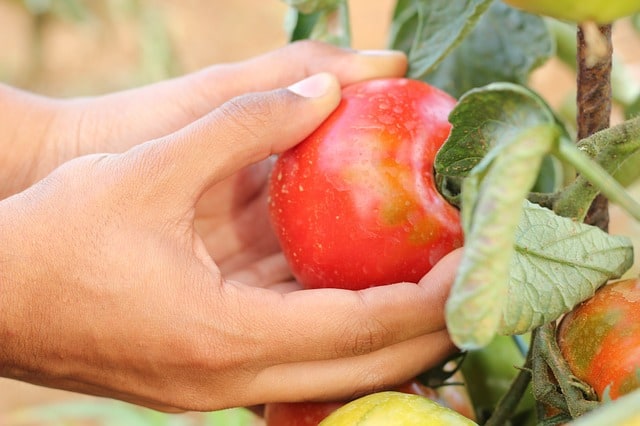
The idea of starting a garden can seem overwhelming, and if you want to try to go the organic route, it be seem even more of a challenge. Using chemical fertilizers and pesticides to help your garden thrive may seem easier.
While they are easily acquired at the local gardening center and proven effective, nonorganic soil fertilizers and pesticides can leach into the flowers, herbs, fruits, and veggies you are working so hard to grow. By eating your harvest, you are ingesting the chemicals they contain. Organic gardening methods can help you avoid these negative effects, and while a natural approach to gardening may seem hard at the outset, we have a few tips to make it easy.
Start With a Solid Foundation: Sun and Soil
Whether you’re planting in the ground or in containers, plant placement is key. Make sure you position your plot where the plants you’ve chosen will receive the daily sun or shade they need.

In order to grow the healthiest plants, you want to prepare your soil and make sure it’s rich and ready to nourish them. Gardeners can easily do this with compost. You’ll want to add compost—a lot of it—to enrich your soil. You can find organic compost at your local garden center or make your own.
Pick the Perfect Plants
Do your research, and pick plants that thrive in your area and the spot where you want to plant them. Don’t pick a plant that likes dry conditions if you live somewhere with a lot of rain or plant something in full sun that needs partial shade.

Choosing plants that won’t struggle just because of where you planted them gives you a head start on making sure that they are healthy and strong. Picking plants that do well naturally will help decrease the amount of care and fuss they require. Xeriscape gardening focuses on making the most of plants native to your area for minimum irrigation and maximum health.
Dealing With Weeds
Handling weeds without chemicals is easier than you think. Pulling weeds daily keeps them from overtaking the garden. This everyday task will also help you make garden maintenance part of your daily routine. It also gives you a chance to inspect your garden for problems as well as enjoy time in it.

Spreading mulch over the soil around your plants is also a good way to help decrease weeds. The mulch helps keep needed moisture from evaporating and prevents the sun from encouraging weed seeds that could grow in your garden, keeping them from sprouting.
Find Natural Pesticides
One of the best ways to avoid pests in your garden is to make sure all your plants are healthy. Harmful insects or animals will naturally target the weakest plant specimens. If pests do make an appearance, there are many organic ways to deal with them.
You can plant flowers and herbs that attract beneficial bugs. Planting marigolds will attract ladybugs that eat pesky aphids, for example.
There are plenty of natural pest repellents to get rid of bugs in your garden. You can use diatomaceous earth to rid the garden of slugs. Other natural remedies you can make in your kitchen, such as pepper-and-oil sprays. They can be used to deal with mites and other insects.

For bigger pests—moths, rabbits, and deer—you can create barriers around your garden and plants to keep them safe. Row cover, a fabric that lets needed elements, such as water and sunlight, reach your plants, is one of the most popular ways to do this and an easy way to protect your garden. This simple organic solution that can be found for sale at most gardening centers.
Organic gardening can be easier to begin than it seems. You can pave the way to success by starting off right. Beginning with the best soil and the healthiest plants is a great start. Once you’ve planted, keeping your garden healthy and thriving the organic way should be simple. There are so many natural options available to help with any obstacle you may face. After following these tips, you should be well on your way to organic success.
Shellie Elliott is a freelance writer and new mom based in Dallas, TX. She grew up gardening with her grandmother and has worked as a florist. She is currently obsessed with cacti and container gardening in small spaces.
For More Information about Organic Gardening
Our home and garden obsessed writers and editors choose every product we review. We may earn money if you buy from a link at no additional cost to you.
